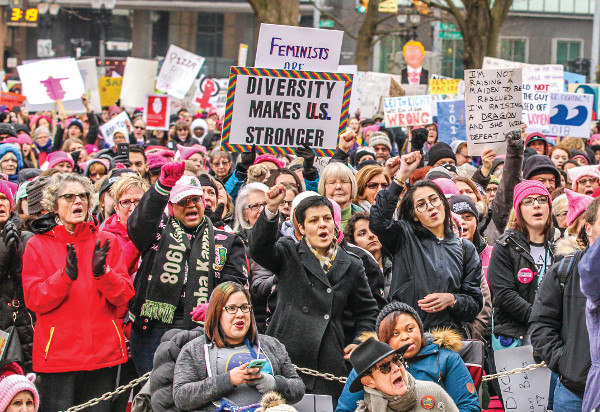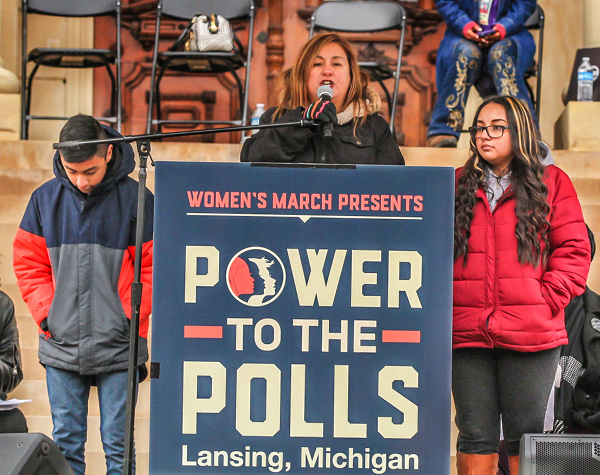
PHOTO/CATHERINE OTTARSON
Lauded as one of the largest marches in U.S. history, the January 20, 2018 Women’s Marches saw a million women, men, and youth rallying for a society that cares for us all. These marches, led by women and sparked by Trump and his policies, reflected the broader crisis in our country: the growing polarity of wealth and poverty and the oppressive rule of the billionaires.
It will be interesting to see if the proposed purpose of #MarchToThePolls has an impact on the upcoming midterm elections. Thousands are running for office in an effort to get the people’s needs addressed, because of the failure of both Republicans and Democrats to deliver on the growing demands of the people.
As we look to the midterm elections, we remember that popular movements develop at the base of a society, by people whose circumstances compel them to protest, force them to action, to undertake the yoke of revolution, and towards the leadership roles that will create a more inclusive and equitable future.
This year in particular, many feminists are voicing the urgency of tying together the multitude of issues confronting people: concerns surrounding violence; the assault on democracy; high incarceration rates; access to education, healthcare, food, water and housing; immigration issues; unemployment, and increased poverty, particularly for women. According to Oxfam, women fare far worse than men in a world where the top 1% of individuals now hold 82% of all wealth.
The most oppressed, the increasingly disenfranchised, the dispossessed, are standing up against the system that has shut them out, even in its most “liberal” attempts at inclusion. This new class, this new “we” in its understanding of a unity based in a shared and growing oppression, is marching forward towards real change.

PHOTOS/CATHERINE OTTARSON

